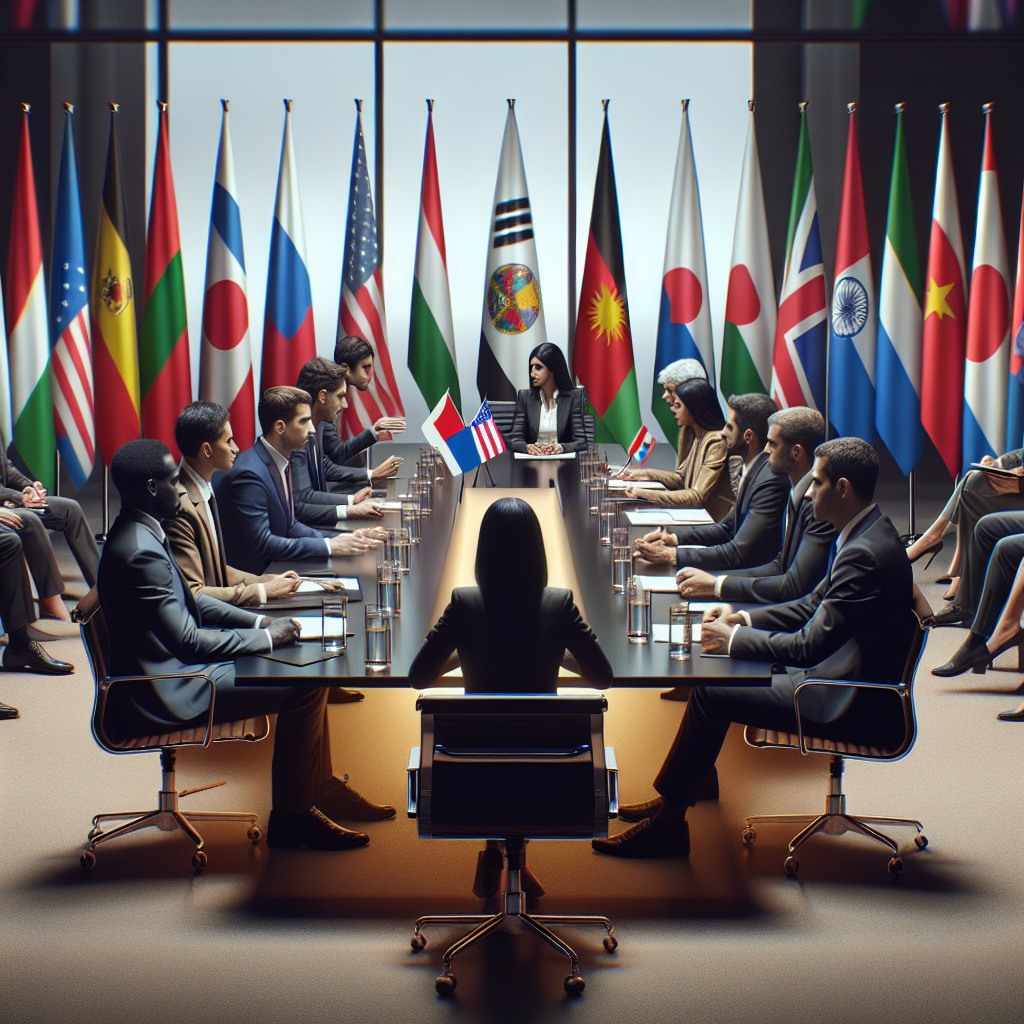Title: Global Conflicts & Diplomatic Moves Shaping Our World
Understanding the World's Most Pressing Diplomatic Challenges
In today’s interconnected world, conflicts and diplomacy often take center stage in headlines. Behind every war-torn region or high-stakes negotiation lies a web of decisions impacting millions of lives. Recent developments, spanning multiple regions, shed light on how global players are striving—or struggling—to find solutions through diplomacy. From the devastating scenes in Gaza to tense negotiations between Russia and Ukraine, and the renewed diplomacy efforts in Saudi Arabia, these stories reflect a world grappling with complex challenges.
Key Global Developments in Conflict and Diplomacy
1. Escalation in Gaza: Israeli Strikes and Heavy Losses
The ongoing Israel-Hamas conflict took another tragic turn with the death of senior Hamas official Ismail Barhoum during an Israeli strike on Nasser Hospital in Gaza. This area remains a hotbed of suffering as civilians bear the brunt of relentless bombings. The hospital attack has also sparked global outrage, with many calling for an immediate ceasefire. Meanwhile, regional diplomacy appears strained, and international organizations like the United Nations persist in advocating for humanitarian corridors.
For Gaza residents, the strike represents more than a strategic setback for Hamas—it symbolizes untold personal loss. Hospitals, once seen as safe havens, are no longer exempt from destruction. This raises urgent questions about the rules of engagement in armed conflict and the fine line separating military strategy from human rights violations.
2. Ceasefire Progress: Russia-Ukraine Talks Take a Positive Turn
Across Europe, much-needed relief comes as Russia and Ukraine agreed to suspend strikes on energy facilities. Notably, this progress stems from broader ceasefire discussions that show glimpses of promise. For months, energy infrastructure has been weaponized to create hardship for civilians, particularly during the unforgiving winters in Eastern Europe.
While distrust still pervades both sides, this temporary accord provides hope for more comprehensive agreements in the future. The involvement of neutral mediators has been critical in facilitating dialogue. Could this signal the first step toward ending Europe’s most significant conflict since World War II?
3. Pope Francis: A Plea for Dialogue Amid Violence
Amid the intensifying crisis in the Middle East, spiritual leaders have also stepped in. Pope Francis’s recent call for an "immediate" end to the Israeli strikes on Gaza highlights the moral voice speaking out against violence. Advocating both for hostages’ release and a lasting ceasefire, his message cuts through the stark divisions of international politics.
Faith-based interventions, especially when they call for peace and negotiation, often play a powerful symbolic role in such conflicts. While they may not yield immediate results, they contribute to the global public's moral consciousness and mobilize international opinion.
4. Saudi Arabia: Bridging Tensions through Diplomatic Talks
Saudi Arabia emerged as a crucial venue for revived US-Russia talks. Against the backdrop of the Ukraine conflict and other pressing geo-strategic issues, Riyadh has positioned itself as a potential mediator. The resumption of dialogue signals a willingness, albeit fragile, by both nations to engage on contentious issues. This is particularly significant as the conflict in Ukraine has profoundly strained relationships between Western powers and Russia.
Saudi Arabia’s hosting of these discussions underscores its growing influence on the international stage—not only as a pivotal oil producer but as a power broker in global diplomacy.
5. Egypt’s Role in Reviving the Israel-Hamas Ceasefire
In an equally determined effort to halt violence, Egypt has stepped forward, proposing a renewed framework to re-establish a ceasefire between Israel and Hamas. Regional dynamics make Egypt a natural player in this process, as it shares borders with Gaza and maintains cultural ties to the Palestinian people. Egyptian officials emphasize constructive dialogue as the primary solution—though its success hinges on international support.
The initiative has highlighted Egypt's ambitions to cement itself as a leading negotiator in Middle Eastern diplomacy.
A Call for Unity: The Diplomatic Imperative
As these conflicts unfold, one underlying truth persists: the world cannot overcome these crises without collective diplomatic efforts. It's easy to disengage when issues seem worlds away, but in an increasingly globalized society, political instability in one region cascades across borders. From energy shortages in Europe to disruptions in global trade, these crises touch everyone in some way.
The recent progress, including temporary agreements and dialogues, serves as evidence that diplomacy, while slow and imperfect, remains our best shot at lasting peace.
Frequently Asked Questions (FAQ)
Q1: What is the global impact of the Israel-Hamas conflict?
The conflict has both regional and global implications, including destabilizing the Middle East and polarizing international opinions. Humanitarian crises in Gaza also draw significant international attention.
Q2: What progress have Russia and Ukraine made in peace talks?
Russia and Ukraine's agreement to suspend strikes on energy facilities signifies a small but positive step toward broader peace discussions, though major hurdles remain.
Q3: How does Saudi Arabia's involvement influence US-Russia dynamics?
By hosting talks, Saudi Arabia is cementing its reputation as a neutral venue for negotiations. Its growing geopolitical clout adds significant weight to its involvement.
Q4: Why is the Pope’s involvement in Gaza significant?
Pope Francis represents a moral authority that transcends politics, rallying people worldwide to advocate for peace and humanitarian action.
Q5: How realistic is Egypt's proposal for a ceasefire?
The success of Egypt’s proposal depends on mutual willingness from both Israel and Hamas, as well as support from other international mediators.
Related Tags
#GlobalDiplomacy #IsraelHamasConflict #RussiaUkraineWar #MiddleEastPeace #PopeFrancis #SaudiArabia #ConflictResolution
Through this analysis, it's clear that while global conflicts persist, there are avenues to push for peace. As individuals, staying informed and advocating for universal human rights can amplify the call for change. Let this be a reminder of our shared responsibility toward building a world free of unnecessary strife. 🌍💬
